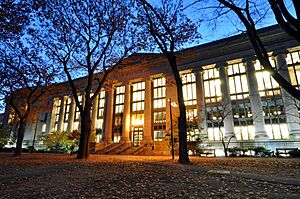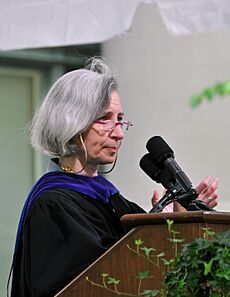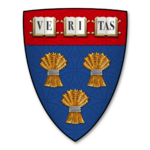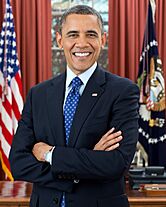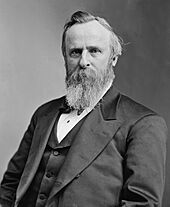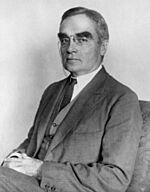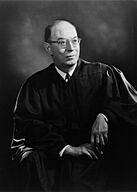Harvard Law School facts for kids
Quick facts for kids Harvard Law School |
|
|---|---|
 |
|
| Motto | Veritas, Lex et Iustitia (Latin for 'Truth, Law and Justice') |
| Parent school | Harvard University |
| Established | 1817 |
| School type | Private law school |
| Dean | John C. P. Goldberg (interim) |
| Location | Cambridge, Massachusetts, US |
| Enrollment | 1,990 (2019) |
| Faculty | 135 |
| USNWR ranking | 6th (tie) (2025) |
| Bar pass rate | 99.4% (2021) |
| ABA profile | Standard 509 Report |
Harvard Law School (often called HLS) is a famous law school that is part of Harvard University. It is a private university located in Cambridge, Massachusetts. Harvard Law School started in 1817. This makes it the oldest law school in the United States that has been open without stopping.
Each year, about 560 students join the three-year program to become lawyers, called the JD program. This is one of the largest programs among top law schools in the U.S. First-year students are divided into groups of about 80. They take most of their first-year classes together. Besides the JD, Harvard also offers advanced law degrees like the LLM and SJD.
HLS has the biggest academic law library in the world. The school has about 115 full-time teachers. In 2019, almost all graduates (99%) passed their bar exam. This exam is needed to become a licensed lawyer. Between 2000 and 2010, more than a quarter of all Supreme Court clerks came from Harvard Law. This was more than any other law school.
Contents
History of Harvard Law School
How the Law School Started
Harvard Law School began with a "law department" at Harvard in 1819. Because of this, Harvard Law School is considered the oldest law school in the U.S. that has always been open. Other law schools, like William & Mary Law School (opened 1779) and the University of Maryland School of Law (chartered 1816), closed for a time.
The law department started two years after Harvard received money for a law professor. This money came from the will of a wealthy man named Isaac Royall Jr. in 1817. Royall owned land in Massachusetts. He left about 1,000 acres to Harvard when he passed away in 1781. He wanted the money from this land to pay for a professor of law or medicine.
The land was sold for about $2,938 by 1809. Harvard used $400 from this money to create the Royall Professorship of Law in 1815. The Royall family was involved in the slave trade. This meant that the work of enslaved people helped fund the teaching of law at Harvard. For a long time, the dean of the law school held the Royall chair. However, some deans, like Elena Kagan and Martha Minow, chose not to hold it because of its connection to slavery.
In 1936, the Royall family's coat of arms was added to the law school's emblem. This emblem showed three stacks of wheat. Most people at the school did not know about the emblem's origins until the 2010s. In March 2016, after students asked, the school decided to remove the emblem. This was because of its link to slavery. In August 2021, Harvard Law School introduced a new emblem.
Royall's old home, the Isaac Royall House, is now a museum. It has the only remaining slave quarters in the northeastern U.S. In 2019, the government of Antigua and Barbuda asked Harvard Law School for reparations. They argued that the school benefited from Royall's enslavement of people in their country.
How the Law School Grew
By 1827, the law school was struggling with only one teacher. Then, Nathan Dane, a former student of Harvard, gave money to create the Dane Professorship of Law. He insisted that Supreme Court Justice Joseph Story be given this position. For a while, the school was even called "Dane Law School." In 1829, John H. Ashmun became a professor. He closed his own law school, and many of his students came to Harvard.
Justice Story believed in having a top law school that focused on public service. This helped the school's reputation. However, enrollment stayed low through the 1800s. Many people thought learning law through apprenticeships was enough. In 1848, HLS removed its admission requirements. In 1869, it also removed exam requirements.
In the 1870s, under Dean Christopher Columbus Langdell, HLS started a new way of teaching law. This became the standard for American law schools. It included classes like contracts, property, torts, criminal law, and civil procedure. Langdell also created the case method of teaching. In this method, students learn law by studying real court cases. This is now the main way law is taught in U.S. law schools. Langdell believed law could be studied like a "science." This gave university legal education a special purpose, different from just training for a job.
20th Century Changes
In the 1900s, Harvard Law School was known for being very competitive. Some people described it as a place where students tested their skills against the best minds. An old story says that new students were told, "Look to your left, look to your right, because one of you won't be here by the end of the year." Books like One L by Scott Turow and The Paper Chase by John Jay Osborn, Jr. describe this tough environment.
Harvard Law was slower than other schools to admit women. It did not accept women students until 1950, for the class of 1953.
The school faced some criticism. Some felt it pushed students towards high-paying law firms instead of public service. Others criticized the large class sizes for first-year students (at one point 140 students per class, later 80). There were also complaints about the administration being distant and teachers being hard to reach. This idea of hard-to-reach teachers is a main part of the movie The Paper Chase and also appears in Legally Blonde.
To address these criticisms, HLS changed its approach. It became more like Yale Law School. Yale focused on making the admissions process competitive, but then made law school itself a more cooperative experience. A 1992 study found that Harvard Law students learned to work with their classmates, not against them. They learned that success was possible for everyone who attended.
21st Century Developments
In the 2000s, under Dean Elena Kagan, Harvard Law made big changes to its academic programs. In 2006, the teachers voted to approve a new first-year curriculum. This new plan focused more on solving problems, administrative law, and international law. It was put into place over several years. In 2008, the teachers decided to change the grading system to Honors/Pass/Low Pass/Fail (H/P/LP/F). This system is similar to those at Yale and Stanford Law School.
In 2009, President Barack Obama chose Kagan to be the solicitor general of the United States. She then left her role as dean. On June 11, 2009, Drew Gilpin Faust, Harvard University's president, named Martha Minow as the new dean. She started on July 1, 2009. Minow announced in January 2017 that she would step down at the end of that school year. In June 2017, John F. Manning became the new dean.
In September 2017, the school put up a plaque. It recognized the indirect role that slavery played in its history. The plaque reads:
In honor of the enslaved whose labor created wealth that made possible the founding of Harvard Law School
May we pursue the highest ideals of law and justice in their memory.
In 2025, an original copy of the Magna Carta was found in Harvard's library. It had been there for almost 80 years.
Coat of Arms
The university's governing body decided to remove the law school's old coat of arms. This shield included three bundles of wheat from the family symbol of Isaac Royall Jr.. He was a benefactor who gave money to start the first professorship at the law school.
Some law students felt that the shield was wrong because of the Royall family's history of owning enslaved people. A committee was formed to study the issue. The university president and law school dean agreed with the committee's decision. They felt the shield did not match the values of the university or the law school. So, on March 15, 2016, the shield was officially removed.
On August 23, 2021, a new emblem was approved. The new design features Harvard's motto, Veritas (Latin for 'truth'). Below it is the Latin phrase Lex et Iustitia, which means 'law and justice'. The new design has lines that spread out. These lines are meant to show the wide reach of the school's work and mission. They also suggest the global impact of the Law School's community. The shape is inspired by details in school buildings. It aims to show energy, complexity, being welcoming, connection, and strength.
Rankings
U.S. News & World Report ranked HLS tied for sixth best law school in the United States in its 2023 rankings. QS World University Rankings ranked HLS first in the world in 2023. The 2019 Academic Ranking of World Universities also ranked it first in the world.
In November 2022, Harvard Law School and Yale Law School decided together to stop participating in the U.S. News & World Report Best Law Schools rankings. They said the ranking system had "flawed methodology."
Student Life at HLS
Student Organizations
Harvard Law School has over 90 student organizations. These groups are very active on campus. They include student-edited journals, the Harvard Law Record newspaper, and the HLS Drama Society. The Drama Society puts on the yearly Harvard Law School Parody. Other groups include the Harvard Legal Aid Bureau and various political, social, service, and sports clubs.
The HLS Student Government is the main group that represents and supports law school students. Students are also represented at the university level by the Harvard Graduate Council.
Harvard Law Review
Students in the Juris Doctor (JD) program help prepare and publish the Harvard Law Review. This is one of the most important university law reviews. They also work on several other law journals and an independent student newspaper. The Harvard Law Review was first published in 1887. Many famous former students have worked on it.
The Harvard Law Review Association, along with other law reviews, also publishes The Bluebook: A Uniform System of Citation. This book is the most widely used guide for how to cite legal information in the United States.
The student newspaper, the Harvard Law Record, has been published since the 1940s. This makes it one of the oldest law school newspapers in the country. It has featured stories about a fictional law student named Fenno for many years. The Harvard Law School Forum on Corporate Governance and Financial Regulation is a very popular law website. Harvard Human Rights Reflections is another popular platform. It discusses human rights law and practice.
The Harvard Law Bulletin is the official magazine of record for Harvard Law School. It was first published in April 1948. The magazine is now published twice a year. It first appeared online in the fall of 1997.
Student Journals
- Harvard Law Review
- Harvard Business Law Review
- Harvard Civil Rights-Civil Liberties Law Review
- Harvard BlackLetter Law Journal
- Harvard Environmental Law Review
- Harvard Human Rights Journal
- Harvard International Law Journal
- Harvard Journal of Law & Gender
- Harvard Journal of Law & Public Policy
- Harvard Journal of Law & Technology
- Harvard Journal of Sports and Entertainment Law
- Harvard Journal on Legislation
- Harvard Latin American Law Review
- Harvard Law & Policy Review
- Harvard National Security Journal
- Harvard Negotiation Law Review
- Unbound: Harvard Journal of the Legal Left
Forums
- Harvard Law School Forum, brings speakers to Harvard Law School to discuss issues
- Harvard Law Review Forum, is an online journal of scholarly responses to the Harvard Law Review's content
Research Programs and Centers
- Animal Law & Policy Program
- Berkman Klein Center for Internet and Society
- Center on the Legal Profession (CLP)
- Charles Hamilton Houston Institute for Race and Justice
- Child Advocacy Program (CAP)
- Criminal Justice Policy Program (CJPP)
- East Asian Legal Studies Program (EALS)
- Environmental & Energy Law Program
- Foundations of Private Law
- Harvard Initiative on Law and Philosophy
- Harvard Law School Project on Disability (HPOD)
- Human Rights Program (HRP)
- Institute for Global Law and Policy (IGLP)
- John M. Olin Center for Law, Economics and Business
- The Julis-Rabinowitz Program on Jewish and Israeli Law
- Labor and Worklife Program (LWP)
- The Petrie-Flom Center for Health Law Policy, Biotechnology, and Bioethics
- Program in Islamic Law (PIL)
- Program on Biblical Law and Christian Legal Studies (PBLCLS)
- Program on Behavioral Economics and Public Policy
- Program on Corporate Governance
- Program on Institutional Investors (PII)
- Program on International Financial Systems (PIFS)
- Program on International Law and Armed Conflict (PILAC)
- Program on Law and Society in the Muslim World
- Program on Negotiation (PON)
- Shareholder Rights Project (SRP)
- Systemic Justice Project (SJP)
- Tax Law Program
Costs to Attend
For the 2022–2023 school year, tuition for nine months was $72,430. There was also a required student health fee of $1,304. This made the total direct costs $73,734.
The total cost to attend Harvard Law for the 2021–2022 school year was $104,200. This amount included tuition, fees, and living expenses.
Job Opportunities After Graduation
According to the school's report for 2020 graduates, 86.8% found jobs that required passing the bar exam. Another 5.3% found jobs where a law degree was helpful.
| ABA Employment Summary for 2020 Graduates | ||||
|---|---|---|---|---|
| Employment Status | Percentage | |||
| Employed – Bar Passage Required | 86.84% | |||
| Employed – J.D. Advantage | 5.26% | |||
| Employed – Professional Position | 1.75% | |||
| Employed – Non-Professional Position | 0.0% | |||
| Employed – Undeterminable | 0.0% | |||
| Pursuing Graduate Degree Full Time | 0.0% | |||
| Unemployed – Start Date Deferred | 0.0% | |||
| Unemployed – Not Seeking | 1.23% | |||
| Unemployed – Seeking | 1.23% | |||
| Employment Status Unknown | 0.0% | |||
| Total of 570 Graduates | ||||
Famous People from Harvard Law School
Alumni (Former Students)
Harvard Law School has many students each year. This means it has graduated a large number of famous people.
Rutherford B. Hayes, who was the 19th president of the United States, graduated from HLS. Also, Barack Obama, the 44th president of the United States, graduated from HLS. He was also the president of the Harvard Law Review. His wife, Michelle Obama, also graduated from Harvard Law School. Other past presidential candidates who went to HLS include Michael Dukakis, Ralph Nader, and Mitt Romney. Eight current U.S. senators are HLS alumni. These include Romney, Ted Cruz, Mike Crapo, Tim Kaine, Jack Reed, Chuck Schumer, Tom Cotton, and Mark Warner.
Other important legal and political leaders who attended HLS include former president of Taiwan, Ma Ying-jeou. Also, the current Prime Minister of Luxembourg, Luc Frieden, is an alumnus. The former Chief Justice of India, Dhananjaya Y. Chandrachud, also studied there. Many other judges and leaders from around the world are HLS graduates.
Lobsang Sangay is the first elected leader of the Tibetan Government in Exile. In 2004, he earned a S.J.D. degree from Harvard Law School.
Sixteen of the school's graduates have served on the Supreme Court of the United States. This is more than any other law school. Four of the nine current members of the court graduated from HLS. These are the chief justice, John Roberts, and associate justices Neil Gorsuch, Ketanji Brown Jackson, and Elena Kagan. Elena Kagan was also the dean of Harvard Law School from 2003 to 2009. Other past Supreme Court justices from Harvard Law School include Antonin Scalia, David Souter, and Oliver Wendell Holmes Jr.. Ruth Bader Ginsburg also attended Harvard Law School for two years.
Many Attorneys General, like Loretta Lynch and Janet Reno, are HLS alumni. Many noted federal judges also graduated from the school. These include Richard Posner and Henry Friendly.
Many HLS alumni are also leaders in business. These include the current senior chairman of Goldman Sachs, Lloyd Blankfein. Also, the former chief executive officer of Reddit, Ellen Pao, is an HLS graduate.
Legal scholars who graduated from Harvard Law include Ronald Dworkin and Laurence Tribe.
In sports, David Otunga is the first and only Harvard Law alumnus to work for WWE. He has won the WWE Tag Team Championship twice.
Faculty (Teachers)
- William P. Alford
- Deborah Anker
- Yochai Benkler
- Robert C. Clark
- I. Glenn Cohen
- Susan P. Crawford
- Noah Feldman
- Roger Fisher
- William W. Fisher
- Jody Freeman
- Charles Fried
- Gerald Frug
- Nancy Gertner
- Mary Ann Glendon
- Jack Goldsmith
- David Alan Hoffman
- Morton Horwitz
- Vicki C. Jackson
- David Kennedy
- Duncan Kennedy
- Randall Kennedy
- Michael Klarman
- Richard J. Lazarus
- Lawrence Lessig
- Kenneth W. Mack
- John F. Manning
- Frank Michelman
- Martha Minow
- Robert Harris Mnookin
- Ashish Nanda
- Charles Nesson
- Gerald L. Neuman
- Ruth Okediji
- Charles Ogletree
- John Mark Ramseyer
- Mark J. Roe
- Lewis Sargentich
- Robert Sitkoff
- Jeannie Suk
- Ronald S. Sullivan Jr.
- Cass Sunstein
- Laurence Tribe
- Mark Tushnet
- Rebecca Tushnet
- Roberto Unger
- Adrian Vermeule
- Steven M. Wise
- Alicia Ely Yamin
- Jonathan Zittrain
Former Faculty
- Phillip Areeda
- Paul M. Bator
- Joseph Henry Beale
- Derrick Bell
- Derek Bok
- Stephen Breyer
- Zechariah Chafee
- Abram Chayes
- Vern Countryman
- Archibald Cox
- Alan Dershowitz
- Christopher Edley Jr.
- Felix Frankfurter
- Paul A. Freund
- Lon Fuller
- John Chipman Gray
- Erwin Griswold
- Lani Guinier
- Henry M. Hart Jr.
- Oliver Wendell Holmes Jr.
- Wendy Jacobs
- Elena Kagan
- Christopher Columbus Langdell
- Louis Loss
- Daniel Meltzer
- Soia Mentschikoff
- Arthur R. Miller
- Elisabeth Owens
- John Palfrey
- Roscoe Pound
- John Rawls
- Joseph Story
- Kathleen Sullivan
- Elizabeth Warren
- Joseph H. H. Weiler
- Samuel Williston
See also
 In Spanish: Escuela de Derecho Harvard para niños
In Spanish: Escuela de Derecho Harvard para niños
- Ames Moot Court Competition
- Harvard Association for Law & Business
- Harvard/MIT Cooperative Society
- Lincoln's Inn Society
- List of Harvard University people
- List of Ivy League law schools
 | DeHart Hubbard |
 | Wilma Rudolph |
 | Jesse Owens |
 | Jackie Joyner-Kersee |
 | Major Taylor |



